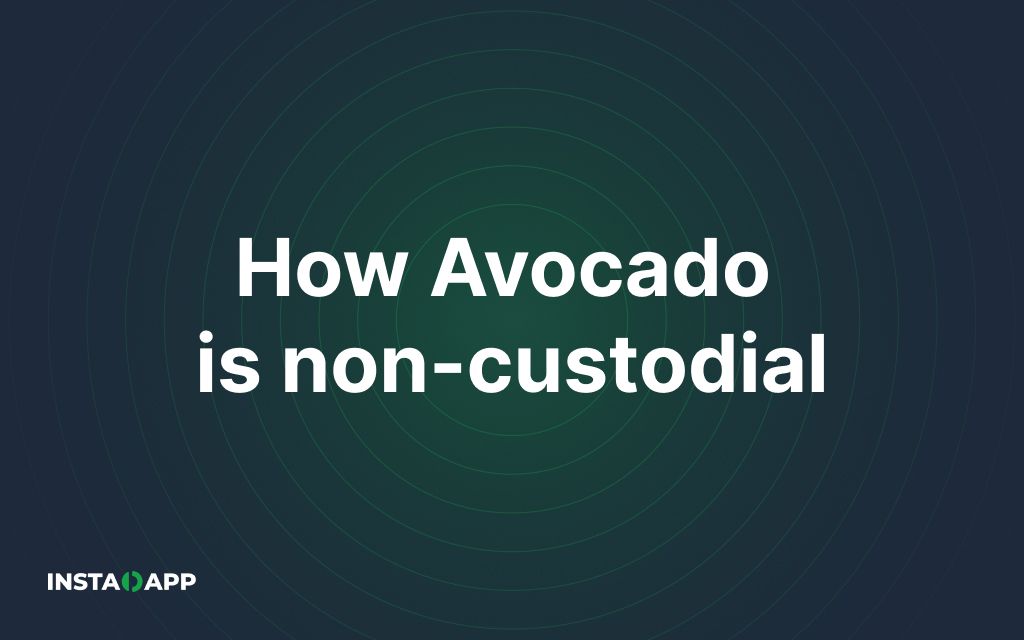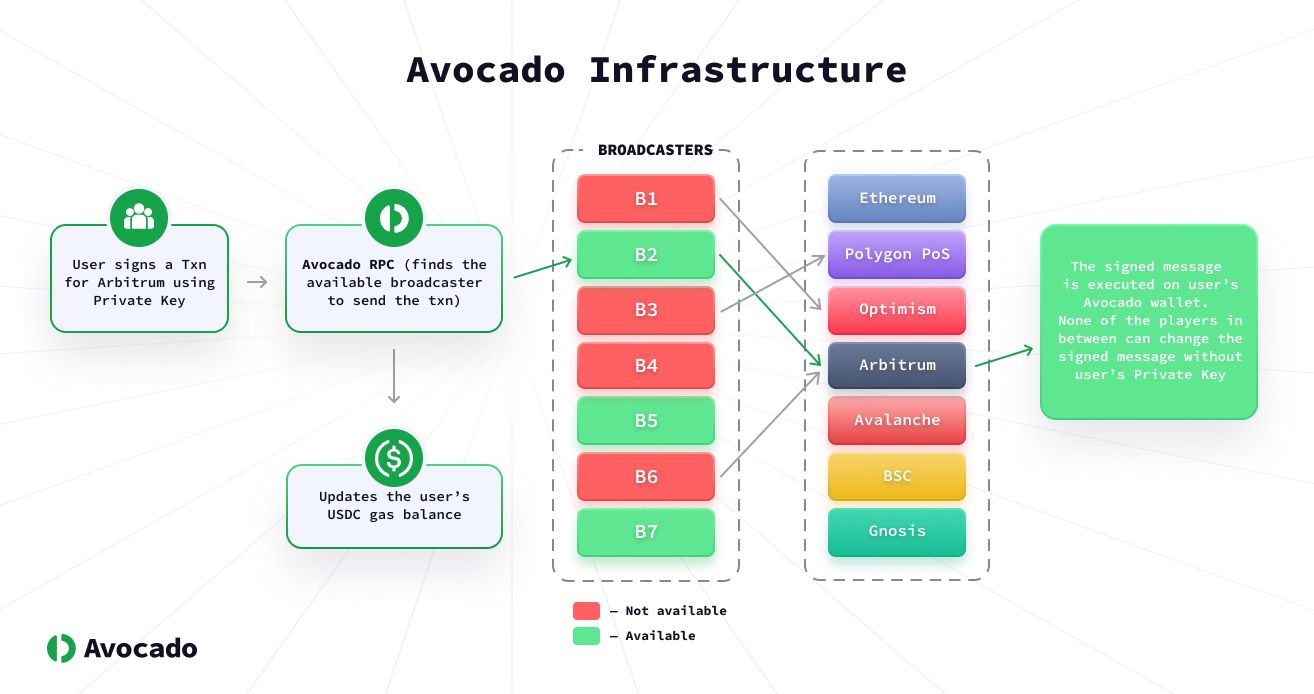How Avocado is non-custodial

The self-custody of assets is the epitome of a decentralized future. Currently in web3 assets could mean tokens, NFTs, liquidity positions, or other forms of data. In Traditional Finance, Banks act as ‘custodians’, whereby they hold our assets. In contrast, ‘Non-custodial’ means you and only you are responsible for your own assets and data. In this article, we explain how Avocado is non-custodial and how it will always remain that way.
Avocado harnesses the power of account abstraction to create your smart contract wallet. This wallet is deterministically linked to the wallet address that you have connected. This means that a specific avocado wallet only has a specific owner and vice versa. Bringing to you the compatibility of your EOA and the simplicity and security of a smart contract.
Why do I have to deposit funds to my Avocado wallet even though it's connected to my EOA? Only custodial, centralized exchanges do that.
While Avocado’s flow resembles a centralized (custodial) exchanges flow, wherein users have to deposit their assets to start transacting. No address, not even Avocado has access to your avocado wallet in any way possible.
Your wallet address is used as a key to generating your Avocado wallet. The only way to access your funds on Avocado is through your EOA.
How are transactions processed on Avocado?
When you make a transaction on/through Avocado, your wallet signs the message which then goes through Avocado’s RPC wherein it finds an available broadcaster to send the transaction to the respective blockchain. Multiple broadcasters are available, meaning even if one broadcaster is down, others will always be available. This redundancy ensures that transactions are always processed even during network spikes.

What is a “broadcaster” in this case?
Technically, a broadcaster is an ethereum account that takes your signed message and sends it to the blockchain, popularly known as a relayer in the industry.
The broadcaster cannot modify any messages and just sends them as they are. The messages are verified on-chain. The broadcaster is programmatically set to send signed messages to the blockchain no matter what. If any message is modified, the transaction will simply fail as it will not pass the verification check on the contracts maintaining its non-custodial nature.
How are messages signed?
Messages are signed from your wallet, like Metamask.
What happens if all the broadcasters go down?
This is an unlikely hypothetical scenario - if all broadcasters are down, users can still move their funds by sending a transaction directly to their Avocado Wallet. As a non-custodial wallet, Avocado users can always execute transactions even without a broadcaster, however, in this case, the user would need to use native gas.
Avocado Gas Tank
One of the biggest utilities of Avocado’s broadcaster infrastructure is that it allows users to pay for gas in a singular unit, USDC. The future of web3 is definitely multi-chain, along with which come native gas fees of each chain. Avocado abstracts gas by letting users pay gas in USDC only regardless of the underlying chain.
The broadcasters charge you for sending a message on-chain in USDC while continuing to pay native gas to the respective chains.
Is gas management decentralized?
You need to top up your Avocado Gas Tank with USDC to make transactions. As explained above the biggest utility of the broadcaster system is to have gas abstraction. Users' assets are fully non-custodial by users having true ownership over their assets. However, the funds in the gas tank are currently custodial allowing access to be with the broadcasters. This is what enables gas abstraction. This will get decentralized over time with a decentralized validator set.
A Non-custodial Future
Web3 gives us a utopian feeling about the future, that no other technology no matter how innovative feels like. Secure, transparent, 24/7 available, equalitarian, and affordable. Where everyone owns their assets and pays what they deserve. We believe Avocado would be the pillar to create a distributed economy, where innovations are built bringing web3 to the masses.
Learn more: Introducing Avocado
Website: https://avocado.instadapp.io/
Discord: https://discord.com/invite/C76CeZc
Twitter: http://twitter.com/instadapp
